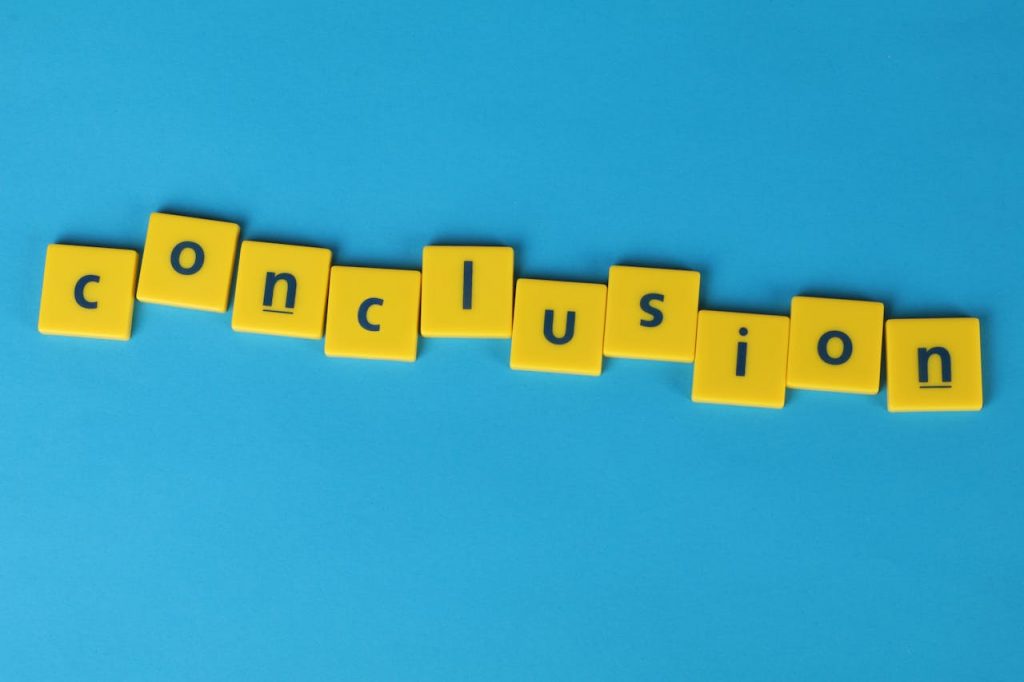ashish Sidhu
I write about the tips and tricks about graphic designing and web development.
Even if you have a clear idea of what you want the conclusion paragraph to say, do you know how to begin...

Image Credits: pexels
Even if you have a clear idea of what you want the conclusion paragraph to say, do you know how to begin it correctly?” Not only are you scratching your head, but you’re also not alone in not knowing how to start a conclusion paragraph? In order to rectify this and create a captivating summary, what should you do? We’re here to help you with that. If you’re nearing the end of your essay and feeling the strain, don’t panic! Just knowing how to begin a conclusion paragraph right now will leave a lasting impact on your reader.
It’s vital to understand why your conclusion is so important before learning how to start a conclusion paragraph. Essentially, your conclusion paragraph is the part of your essay where you demonstrate to your reader that you’ve completed what you said you’d do at the beginning (in your introduction). To put it another way, you’re giving your reader the knowledge they need to develop their own judgment or decision about your topic or points of view. Your conclusion notifies your reader that they have reached the end of your piece and that it is now time to think about the information and facts you have provided. If you don’t mention this, you’re leaving readers hanging and giving them nothing to think about after you’ve put your heart and soul into your essay.
The goal of your essay conclusion is to leave an impression on your reader or provide food for thought. It’ll be the last paragraph of your work that they read, and it’ll most likely be the last thing they remember. As a result, the majority of folks appear perplexed as to how to start a conclusion paragraph. The importance of your final impressions is equal to that of your first. Have you ever walked away from a tense situation after saying something embarrassing? When this happens, you’re generally concerned that the other person will think you’re strange or uncomfortable as a result of the past few seconds. That leaves an indelible impression, and it’s no different when it comes to your business.
Transitions are an important part of any essay, and you should use them in your conclusion paragraph as well. Transition words connect sentences and ideas, making them flow more easily and allowing essential subjects to connect. Because the goal of your conclusion paragraph is to summarise and tie everything up, transition phrases are crucial. Here are a few great transition words to use in your conclusion to help you summarise your major points:-
You understand how to start a conclusion paragraph now. Finally, in your final paragraph, you should respond to the reader’s query, “So what?” At the end of the day, you’re writing an essay to make a point, whether it’s to reflect on something, persuade your reader of your point of view, or respond to a prompt. Why should anyone care about what you have to say?
Answering the “so what” question when you’re writing a paper for a class on a topic you didn’t pick might be difficult. In an argumentative or persuasive essay, it’s easy to notice, but in a reflection paper, article summary, or research report, it’s a little more difficult to spot.
Anything you write, on the other hand, has the potential to be meaningful. Take a look at the core of the argument. For example, if you’re writing a reflection paper about your experiences in a certain course, the “so what” is to show your readers how much you’ve grown and learned over that course. If you’re writing a research paper about a Civil War battle, the “so what” may be why that battle was so important to the war’s end.
Here are some pointers and topics to consider when you compose your conclusion:-
You learned how to begin a closing paragraph in this blog. I hope you now know how to start a conclusion paragraph. A conclusion is required to bring together the key ideas and explain why they are essential in your essay. Writing a strong ending phrase might be challenging, but with a clear framework and a variety of alternatives, you’ll have plenty of space to experiment.
Suggested:
Tips to Write Faster, Better Content.
Practical Steps to Become a Successful Content Writer.
Best tactics to write unique content for SEO.